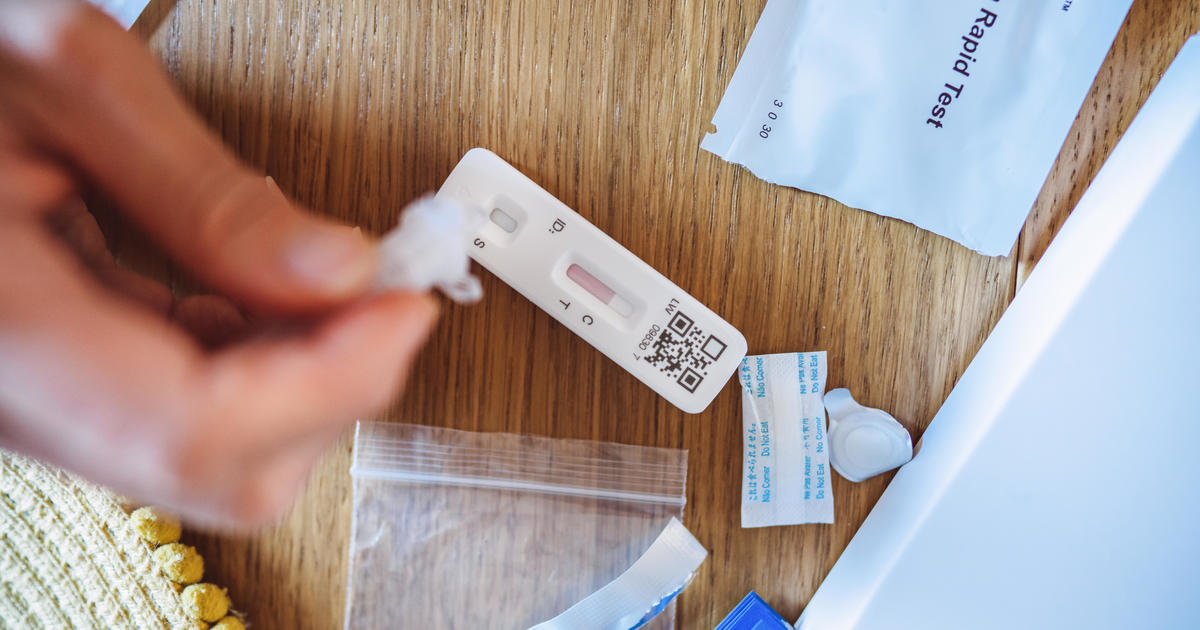
Free COVID tests are back. But there are more accurate tests for sale.

Manufacturers of the most accurate home COVID-19 tests on the market say they were left out again from the Biden administration’s latest round of free orders through COVIDTests.gov, which for a seventh time will rely on less sensitive “antigen” tests, which are generally the cheaper options available on drugstore shelves.
Federal health officials have justified the millions they have spent on device manufacturers for the latest waves as critical to subsidizing U.S. factories capable of producing tests ahead of another potential pandemic, during a time when demand has evaporated.
Taxpayer dollars have flowed largely towards manufacturers of inexpensive rapid antigen tests like Access Bio in New Jersey and iHealth in California, instead of more accurate “molecular” alternatives that the Food and Drug Administration has also greenlighted.
granted authorization to only four over-the-counter molecular test brands for COVID-19, which are the most accurate but also most expensive options:
- Lucira by Pfizer sells a single-use test that has the cheapest up-front cost, starting at $39.99, which detects both COVID-19 as well as influenza. The FDA says results take around 30 minutes and the shelf life of each test lasts 18 months.
- Aptitude Medical Systems sells a “starter bundle” which comes with a reusable reader and two test kits for $99.97. The FDA says results take around 30 minutes and the shelf life of the tests last around 18 months. Additional test kits cost $24.99.
- 3EO Health sells a “starter kit” that comes with a reusable testing device and two swabs for $195. The FDA says results take around 30 minutes and the shelf life of the tests last four months. Additional swabs and “test keys” cost $39.90 for a two-pack.
- Cue Health sells a reusable “reader” that costs $199. Test kits are currently out of stock on the company’s website. The FDA says results take around 20 minutes and the shelf life of the tests last around four months.
These prices are many times higher than antigen testing options, though device manufacturers say COVID-19 tests are generally eligible for flexible spending account or health savings account dollars and could be reimbursable under some health insurance plans.
Results from using a molecular test take longer because the devices need to create chemical reactions to amplify any traces of the virus that might be otherwise missed by less accurate tests.
That translates to an advertised sensitivity — their accuracy in correctly spotting infections — up to more than 90%, even when people do not have symptoms from the virus.
By contrast, the FDA warns that Americans relying on antigen tests should be prepared to use up multiple kits if they worry they might be infected.
Since antigen options have a higher risk of producing a false negative result, especially early during an infection, the agency says people should continue to repeat their testing over several days after their first negative test.
This difference is important early during a course of a COVID-19 infection, when the CDC says people tend to be most contagious. The highest amount of infectious virus is detected from patients “within a few days before and after” symptoms begin.
The CDC says in its latest guidance that testing negative on antigen tests can still be a useful “option” for helping to judge when it is safer to stop isolating at the tail end of an infection, offering a “rough approximation of whether a person is still infectious” to others.
What brands of antigen tests are being shipped by COVIDTests.gov?
COVID-19 antigen test manufacturers told CBS News that they are still delivering kits to the federal government through awards in previous years by ASPR, including additional contracts last year to a dozen manufacturers.
Test kits are also being distributed “directly to health centers, long-term care facilities, food banks, other community hubs,” an ASPR spokesperson said.
Of those brands, a handful have been able to earn the FDA’s “traditional marketing authorization” to continue to sell their tests in the wake of the pandemic as emergency authorities wind down, including:
- CorDx sells two-packs for $14.99 that offers results in 10 minutes
- iHealth Labs sells two-packs for $17.98 that offers results in 15 minutes
- InBios International sells two-packs for $8.50 that offers results in 20 minutes
- Quidel Corporation sells two-packs for $16.99 that offers results in 10 minutes
Other tests remain under emergency use authorization, including OraSure’s InteliSwab kit. That “more accessible” test is being shipped through the Administration for Community Living again this year for free to Americans who are blind or who have low vision.
While less accurate than molecular tests, ASPR says their antigen tests this year will continue to be able to “detect the currently circulating COVID-19 variants.”
More
More
Source: cbsnews.com